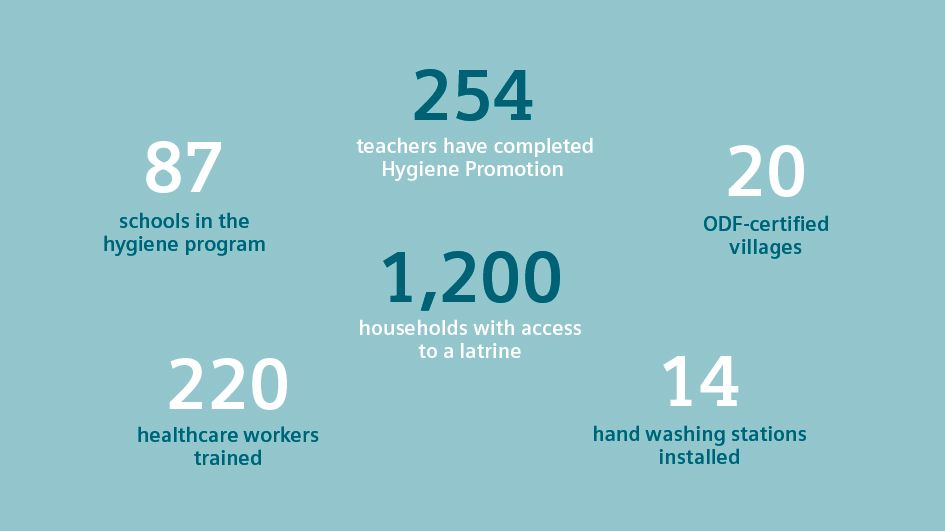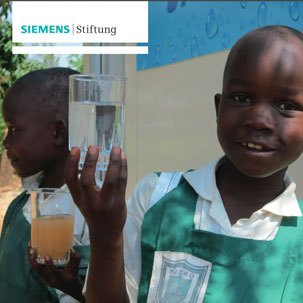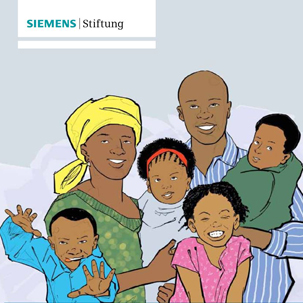Hygiene Promotion
It is important for children and young people to develop a sense of the correlation between hygiene and disease at an early age, which is why we work closely with local primary schools in addition to our door-to-door educational activity. KWAHO provides training for teachers, works with schools to organize events, and helps establish what are known as “Health Clubs.” We also provide schools with hand-washing stations and latrines so students and teachers are able to wash their hands regularly.
Practical lessons in schools
Working with the Kenya Water for Health Organization (KWAHO), we created two sets of guidelines: one for practice-oriented hygiene education in primary schools, and the other for families and communities.
The practical hygiene tips shared in schools come from an experimentation set, which uses simple experiments to answer questions: How does contaminated water affect our health? Which everyday situations are more critical than others? How can contaminated water be turned into clean drinking water? By trying things out and through visible observation of the effects, it becomes easier to understand and comprehend related principles and correlations. The methodology behind the hygiene lessons is derived from Siemens Stiftung’s international education program Experimento.
Teachers and students are often good multipliers for quickly spreading newfound knowledge and correlations about water, hygiene, and health throughout communities. As this knowledge catches on, the number of adults who will have learned good hygiene habits as children increases, which perpetuates the behavior.
Alongside Hygiene Promotion in primary schools, we’ve worked with KWAHO on a manual that summarizes the most important messages for drinking water, hygiene, and health for use as an instructional aid by healthcare workers in the villages. They use the manual to teach women and children, who usually fetch the water in a family, about what they should consider when transporting and storing water, as well how to select a suitable source of water in the first place.
Covid-19 pandemic: educational materials
In cooperation with KWAHO, we are providing free educational material about Covid-19 in English and Swahili for our partners, employees and local communities.
The information posters, rules of conduct, myth flyers and banners can be downloaded as open source here:
When ideas inspire others...

* ODF stands for “Open Defecation Free” and means that at least 90% of households in the communities can use a toilet or latrine.
Christine Meinhardt
+49 9131 9207 913





